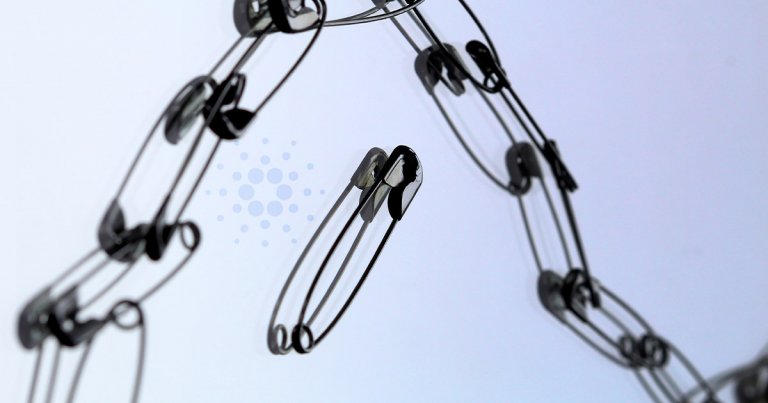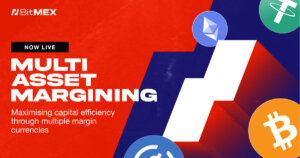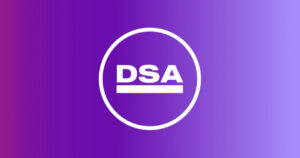 Cardano founder Charles Hoskinson: Founders must decouple from the cryptocurrency
Cardano founder Charles Hoskinson: Founders must decouple from the cryptocurrency Cardano founder Charles Hoskinson: Founders must decouple from the cryptocurrency

Cover art/illustration via CryptoSlate. Image includes combined content which may include AI-generated content.
In the latest episode of the “Untold Stories” podcast, host Charlie Shrem discussed the topic of adoption in crypto with Charles Hoskinson, the founder of Cardano. The two agreed that the loss of faith in government institutions has set a good foundation for cryptocurrencies to step in, which means that more effort needed to be made in making crypto available and accessible to everyone.
Cryptocurrencies are the ultimate rejection of government, but adoption is still far away
The ongoing COVID-19 pandemic has highlighted one of the deepest, hardest problems humanity currently faces—the lack of a single truthful narrative. This, according to Charles Hoskinson, has resulted in an overwhelming animosity towards centralized governing entities, causing a rift both in politics and in the everyday lives of ordinary people.
The CEO of IOHK discussed this, alongside a myriad of other topics, in the latest episode of the “Untold Stories” podcast with Charlie Shrem. Shrem, the founding director of the Bitcoin Foundation and one of the most influential people in crypto, went deep with Hoskinson in the issues the world currently faces.
Unsurprisingly, the answers to most of them seem to lie in cryptocurrencies.
Hoskinson said that the ongoing pandemic has only exacerbated the huge inequalities and injustices in the world, which will most likely result in a political revolution. The problem of divisiveness both in the media and the government, especially in the U.S., is what fueled the growth of the crypto industry in the first place.
“When you think about it, cryptocurrencies are the ultimate rejection of the government,” Hoskinson said in the podcast.
With a lack of trust in centralized entities comes an increase in trust in the decentralized systems that underlie cryptocurrencies. However, both Hoskinson and Shrem agreed that there is still a lot to be done in the crypto space before it reaches mainstream adoption.
The best way for this to happen, Hoskinson said, was through payment gateways for merchants. If cryptocurrencies could easily be used to buy things, more people would get into it for the sheer convenience.
However, merchant adoption has always been notoriously slow. Hoskinson said that one of the main issues merchants face with crypto is the issue of stability.
“What we’ve seen with merchants, historically, is that they’ll only take a crypto asset if they have a quick path of either locking in the value or divesting the asset.”
Without a seamless way of converting cryptocurrencies into fiat currency, merchants will be slow to adopt. However, a seamless way of converting crypto to fiat is essentially worthless if merchants will hesitate to accept tokens due to their volatility.
Creating a circular economy and banking the unbanked
Most services that offer the conversion step to merchants are heavily involved either in trading cryptocurrencies or in the traditional banking system, which leaves very little space for innovation. Hoskinson said he believes the best way to onboard merchants isn’t through new products, but rather through integration with existing payment processors such as Square.
And while this would certainly increase adoption, it still won’t be the “real deal.” According to Hoskinson, the real adoption won’t come until merchants actually stop exchanging cryptocurrencies into fiat.
To do that, merchants will need to see a token with all of the advantages of cryptocurrencies but without the volatility. Hoskinson said that it would be the perfect place for stablecoins to step in.
There has been a lot of hype around the possibility of hosting a stablecoin on the Cardano blockchain once it reaches full maturity. Hoskinson himself discussed the idea at length and seemed to believe that it was the only logical way to go forward for Cardano. In the podcast, he said that it made sense to have a stablecoin on Cardano that would be tied to the underlying asset of the network, ADA and fiat currency, while also having the backing of third-party intermediaries. A stablecoin, he said, has always been in the Cardano roadmap.

He explained that this method will have a twofold advantage—firstly, it would incentivize merchants to keep the tokens as they are and not exchange them into fiat currency, creating a circular economy that would further strengthen the network.
Secondly, it would also provide a platform for merchants that are unbanked. Hoskinson cited the example of the cannabis industry in the U.S., where almost all companies rely solely on cash. Being unable to get bank accounts, companies are faced with a myriad of problems, such as how to pay taxes. Shrem noted that other marginalized, but burgeoning industries such as the porn and the arms industries could also benefit from such a platform.
Knowing that convenience and speed are of the utmost importance to systems like this, Hoskinson said that IOHK has been experimenting with making payments work on smartphones. The company could be adding “hooks” into the Cardano software suite that would make it easier to integrate with various payment protocols down the line.
With the implementation of Ouroboros, Cardano’s scaling protocol, will also make microtransactions possible, Hoskinson said. When combined with the stability of a stablecoin, it could be used for everything from tipping to lending.

The introduction of cryptocurrency wallets in the latest Samsung Galaxy smartphone series showed that there is a future in mobile-based crypto payment processors. Hoskinson believes that we could see similar experiences built into iPhones and other operating systems in the next three or four years.
Innovations such as that most likely won’t happen in developed countries.
“Necessity is the mother of all invention,” Hoskinson said, adding that the most innovative products have a tendency of being built-in ecosystems such as Africa, where a lack of trust in governments and a scarcity of resources results in creativity.
These projects will bring about the de-dollarization of the world, which makes both Hoskinson and Shrem, extremely bullish on cryptocurrencies.
Decoupling Cardano from Charles Hoskinson
Hoskinson’s optimism in the future of Cardano seems to stem from his ability to distance himself from the project. Shrem said that one of the main issues some of the cryptocurrencies on the market face is the “key man” problem. When a project is too tightly wound to a specific person, as is the case with Ethereum and Vitalik Buterin, it tends to shake the community’s confidence in its future.
This, Hoskinson said, isn’t the case with Cardano. He explained that those holding ADA and invested in Cardano know that when Charles Hoskinson dies, Cardano will continue to operate, academic papers will continue to be published, and research will go on uninterrupted.
Putting in place Cardano’s treasury will enable Cardano to become a truly decentralized network. The voting system that will come with the Goguen era will enable people to express their opinions about the state of the network and ask for money to fund development.
For the sake of the community, Hoskinson believes that founders need to have a Satoshi-like attitude about stepping away from power and leaving their networks to the community. Therefore, it won’t be Hoskinson, IOHK, or the Cardano Foundation that run Cardano, but the community itself. Its governance systems will allow the community to work their way through controversies and implement changes in the protocol.
This was one of the main problems Hoskinson faced when working on Ethereum. The main difference between him and Vitalik Buterin, he explained, was Hoskinson’s belief that governance is essential for a cryptocurrency. Buterin, instead, saw governance as being a less important aspect of a crypto network.
The lack of governance was what caused massive schisms in the world’s two largest cryptocurrencies, which resulted in wars that yielded hardforks such as Bitcoin Cash and Ethereum Classic.
Without massive internal fights over the future of the protocol, a network would become more attractive to large institutions and enterprises. And with an inclusive and decentralized way of doing cutting edge science and research, Hoskinson believes Cardano is on its way to achieving this.
Mentioned in this article
 Cardano
Cardano  Ethereum
Ethereum  Ethereum Classic
Ethereum Classic  Input Output
Input Output  Cardano Foundation
Cardano Foundation  Charles Hoskinson
Charles Hoskinson  Charlie Shrem
Charlie Shrem  Vitalik Buterin
Vitalik Buterin 


 CoinGlass
CoinGlass  Arkham Intelligence
Arkham Intelligence 

























































































